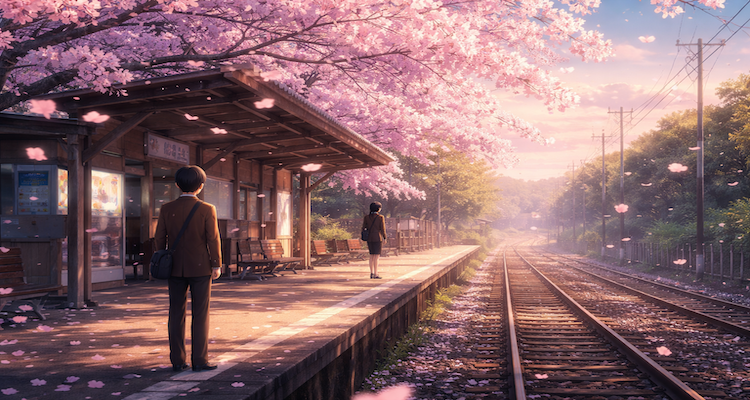Hungarian Author László Krasznahorkai Named 2025 Nobel Laureate in Literature

Hungarian novelist László Krasznahorkai wins the 2025 Nobel Prize in Literature for his visionary, apocalyptic storytelling that reaffirms the enduring power of art.
A New Chapter for Hungarian Literature
The 2025 Nobel Prize in Literature has been awarded to László Krasznahorkai, the celebrated Hungarian novelist whose hauntingly visionary works have reshaped modern European fiction. The Swedish Academy recognized him “for his compelling and visionary oeuvre that, in the midst of apocalyptic terror, reaffirms the power of art.”
Krasznahorkai, often described as one of Europe’s most challenging yet rewarding writers, becomes the second Hungarian to receive the Nobel Prize in Literature — following Imre Kertész, who won in 2002 for his Holocaust-themed masterpiece Fatelessness.
A Voice from the Hungarian Countryside
Born on January 5, 1954, in the small town of Gyula, near Hungary’s border with Romania, Krasznahorkai’s literary imagination was shaped by the isolation and intensity of rural life. His breakthrough novel, Satantango (1985), depicted a desolate collective farm in the waning days of Hungarian communism — a haunting allegory of decay, faith, and endurance.
The book’s bleak beauty stunned Hungary’s literary scene and later reached global audiences through a seven-hour film adaptation by director Béla Tarr in 1994. The novel’s dense, flowing prose — often unbroken by paragraphs — became Krasznahorkai’s signature style, reflecting the chaos and continuity of human thought.
Master of the Apocalypse
The American writer Susan Sontag famously dubbed Krasznahorkai “the contemporary master of the apocalypse” after reading his 1989 novel The Melancholy of Resistance, a surreal and philosophical tale set in a collapsing provincial town. The novel, later adapted into Tarr’s acclaimed film Werckmeister Harmonies, explores how fragile order and morality become in the face of collective madness.
His work, often classified as “apocalyptic fiction,” is less about destruction and more about the persistence of art and meaning amid chaos. Critics have noted his ability to turn despair into transcendence — to find spiritual endurance in the ruins of civilization.
Epic Storyteller with Eastern Sensibility
Krasznahorkai’s fiction is steeped in the Central European literary tradition that stretches from Franz Kafka to Thomas Bernhard — one that blends absurdism, moral inquiry, and grotesque excess. Yet unlike his predecessors, Krasznahorkai brings a meditative Eastern dimension to his writing, shaped by his travels in China and Japan.
His 2003 novel A Mountain to the North, a Lake to the South, Paths to the West, a River to the East unfolds southeast of Kyoto, following a man’s quiet search for a hidden temple — a lyrical reflection on art, faith, and impermanence. This work anticipated Seiobo There Below, a 2013 collection arranged in a Fibonacci sequence, exploring artistic beauty through interconnected tales inspired by myth, music, and visual art.
At the heart of these stories lies the Japanese legend of Seiobo, a goddess who tends a garden bearing fruit of immortality once every 3,000 years — a potent metaphor for artistic transcendence.
The German Novel and the Manhattan Madness
Krasznahorkai’s 2021 novel Herscht 07769, set in a small German town in Thuringia, delves into the unsettling undercurrents of modern society. Critics have called it “a great contemporary German novel,” lauding its precision in portraying social unrest and alienation in post-industrial Europe.
Equally compelling is his 2018 novella Spadework for a Palace, a darkly humorous story set in Manhattan. Here, Krasznahorkai conjures a ghostly dialogue with Herman Melville, exploring obsession, madness, and the thin boundary between genius and insanity.
A Universal Vision Amid Despair
The Nobel Committee’s decision underscores a growing global recognition of writers who explore existential uncertainty in the modern world. In an age defined by crises — environmental, political, and digital — Krasznahorkai’s literature offers both a warning and a refuge. His long, rhythmic sentences, often compared to orchestral movements, demand patience but reward readers with rare moments of clarity and awe.
As literary critic Gábor Németh noted, “Krasznahorkai’s apocalypse is not destruction — it’s revelation. He writes about what remains when everything else falls away.”
Legacy and Literary Continuum
With this Nobel Prize, Hungary reclaims its place in the global literary landscape. Krasznahorkai’s win highlights the endurance of Central European storytelling, where philosophy, history, and myth converge. His works — translated into more than twenty languages — have inspired a new generation of writers, filmmakers, and artists seeking to capture the fragile beauty of existence.
Following last year’s award to South Korean author Han Kang, the Nobel Committee’s choice in 2025 reflects a commitment to literary voices that bridge cultures and confront global anxieties through art.
Conclusion: Art Beyond the End of the World
László Krasznahorkai’s Nobel Prize is more than a personal triumph — it is a reminder that literature can still illuminate the darkest corners of human experience. His apocalyptic visions do not end in despair but in an act of artistic faith: that beauty and meaning endure, even when the world appears to fall apart.
In his own words, “Art is not about survival. It is about bearing witness to what cannot be destroyed.”
Disclaimer:This article is an original journalistic piece based on verified information available at the time of writing. All quotations and references are used for informational and illustrative purposes.










